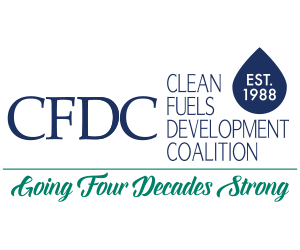It’s Time—EPA: Make Gasoline SAFE!
Gasoline and its emissions are one of the greatest threats to public health Americans face today. Transportation related pollution accounts for an estimated 50,000 premature deaths annually. When lead was removed from gasoline, it was replaced with benzene-laced octane enhancers—despite the fact that benzene is a well-documented carcinogen (see CFDC’s Fact Book What’s in Our Gasoline Is Killing Us: Mobile Source Air Toxics and The Threat to Public Health, i.e., MSAT Fact Book).
The MSAT Fact Book research lead to the first national public health campaign focused on the clear and present danger of gasoline emissions.
As documented in the MSAT Fact Book, despite the fact that the American Cancer Society, International Agency for Research on Cancer, and even the American Petroleum Institute agree that “the only absolutely safe concentration for benzene is zero,” benzene and benzene-derived additives make up roughly 20% of the nation’s gasoline supply—about 25 billion gallons a year.
- Strike 1: “The EPA classifies benzene as a known human carcinogen. Benzene is also a natural part of crude oil and gasoline (and therefore motor vehicle exhaust), as well as cigarette smoke. Benzene is known to cause cancer, based on evidence from studies in both people and lab animals. The link between benzene and cancer has largely focused on leukemia and other cancers of blood cells.” – American Cancer Society
- Strike Two: International Agency for Research on Cancer (IARC) classifies Benzene as a Group 1, meaning the agent (mixture) is carcinogenic to humans.
- Strike Three: The American Petroleum Institute (API) stated in 1948 that “it is generally considered that the only absolutely safe concentration for Benzene is zero.”
Research shows that factoring in healthcare costs, gasoline costs the public over $5 per gallon.
The Clean Air Act saved over 2 trillion dollars in healthcare costs, simply by reducing pollution and cleaning up fuels. Congress gave EPA the authority to reduce toxic carcinogens in gasoline “to the greatest extent possible.” Many believe the EPA has failed to do so.
The National Gasoline Public Health Education and Consumer Awareness Campaign (i.e. SAFE Gasoline) supports the goals of Safer Affordable Fuel Efficient Gasoline (SAFE) proposed rule currently being considered by the EPA, under the jurisdiction of the Office of Transportation and Fuels and Air Quality (OTAQ).
The SAFE Gasoline campaign will monitor the actions of EPA/OTAQ and progress on its SAFE rule, as well as the many other environmental, energy, economic, public health and national security implications resulting from our continued reliance on gasoline.
The SAFE Gasoline campaign produced gasoline public service announcements, and will continue to provide answers to new and frequently asked questions, monitor related articles in the media, and other special projects.
It’s time for consumers to demand. Become and advocate for your health and engage with the SAFE Gasoline Campaign.
- We encourage you to sign the EPA: Make Gasoline SAFE! citizens’ petition to EPA.
- Like and follow the Campaign on Facebook
- Follow the Campaign and related news on Twitter
- Watch and share our Campaign YouTube Channel public service announcements and other educational videos
We welcome and value your feedback at SAFE.Gasoline@cleanfuelsdc.org.
